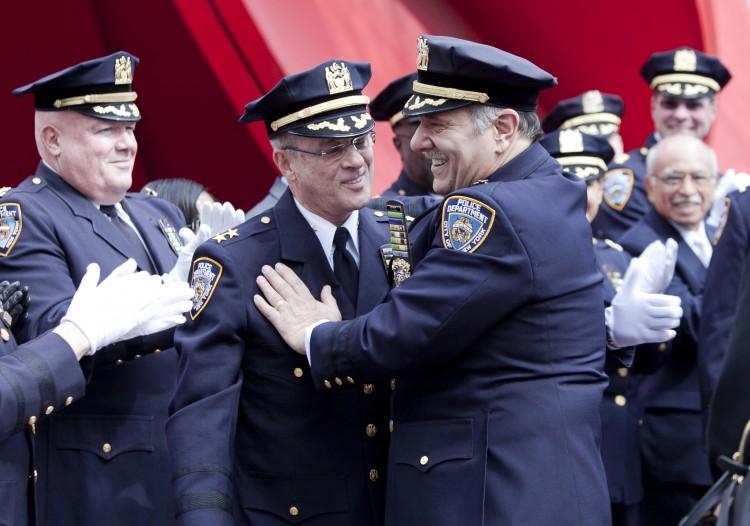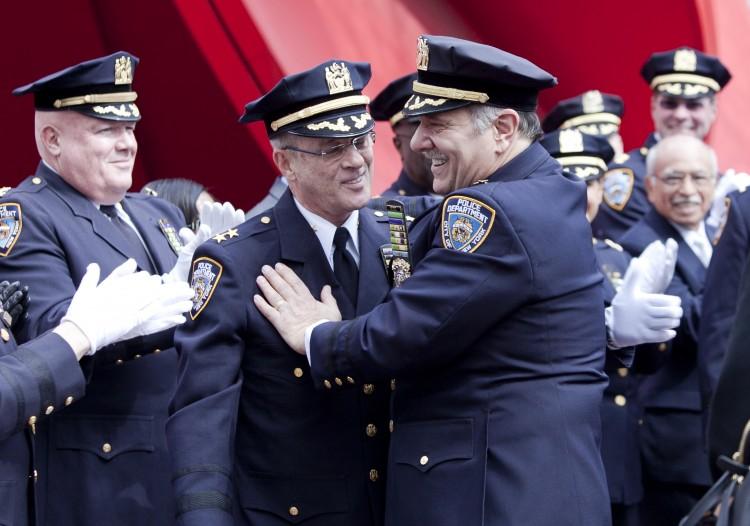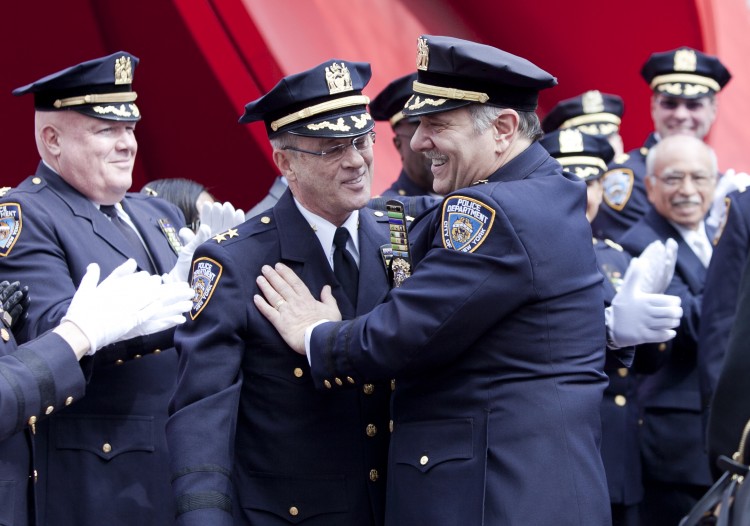NEW YORK—Hundreds of police officers and dozens of civilians gathered at One Police Plaza to celebrate the retirement of Joseph Esposito, chief of the NYPD, after more than 44 years of service.
Esposito turns 63, the NYPD’s mandatory retirement age, on March 28.
“I wish I had a couple more years to go, but that’s not what’s in the cards,” he said at an unrelated event on March 25, laughing. “I don’t make the law, I just follow it.”
He'll miss getting up and coming into work every day, he said. “Nothing’s been better.”
Esposito began his career in August 1968 as a trainee, and through the years rose through the ranks. He was appointed chief, the third in command, in 2000.
During his tenure, Esposito has won praise for helping reduce crime and defusing heated situations. For example, during an especially vigorous Occupy Wall Street protest in Times Square in October 2011, when officers on horseback came into the area to corral surging protesters, Esposito stepped between the officers and protesters. The protesters began chanting his name.
Other incidents have garnered criticism, but overall his tenure is viewed favorably.







